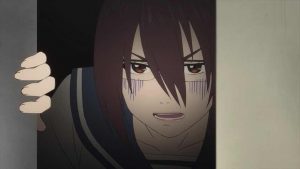 I find the fact that Mashiro no Oto is capable of being so transcendent in one moment and so pedestrian in the next to be quite fascinating. There’s no buffer zone either – this isn’t a case of good episodes and bad episodes. The Jekyll and Hyde of Those Snow White Notes reveal themselves within the same ep and often within the same scene. In broad terms this syndrome is hardly unique or even uncommon in anime, but to see it manifested to this extent is quite a rare thing.
I find the fact that Mashiro no Oto is capable of being so transcendent in one moment and so pedestrian in the next to be quite fascinating. There’s no buffer zone either – this isn’t a case of good episodes and bad episodes. The Jekyll and Hyde of Those Snow White Notes reveal themselves within the same ep and often within the same scene. In broad terms this syndrome is hardly unique or even uncommon in anime, but to see it manifested to this extent is quite a rare thing.
 Generally speaking, I find the school stuff to mostly be on the pedestrian side of the ledger. None of the characters really work – Shuri and Yui are opposite-coin anime girl stereotypes (I find Shuri less annoying but no less cliched). Kai is a two-dimensional baka dude with a stock back story, and Rai comes uncomfortably close to being a dated gay stereotype (undeclared). And don’t even get me started on the teacher. A school club, a training camp arc – this is about as bog standard as manga or anime can get.
Generally speaking, I find the school stuff to mostly be on the pedestrian side of the ledger. None of the characters really work – Shuri and Yui are opposite-coin anime girl stereotypes (I find Shuri less annoying but no less cliched). Kai is a two-dimensional baka dude with a stock back story, and Rai comes uncomfortably close to being a dated gay stereotype (undeclared). And don’t even get me started on the teacher. A school club, a training camp arc – this is about as bog standard as manga or anime can get.
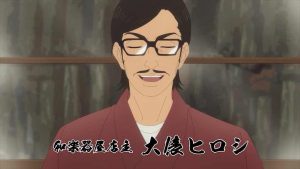 But then there’s the music… And that part of the series is so strong that it can elevate even these tropey elements. Added into the mix as well (rather out of the blue, I must say) is musical instrument shop owner Oodawara Hiroshi (Kimura Kyouya). You can kind of tell something was cut out here, because we just sort of segue into Oodawara becoming the club’s technical advisor as if it had been happening for weeks. He’s the one who suggests the kids to a training camp – to Tsugaru, naturally – and it comes just in the nick of time for Shuri, who’s falling behind the others (especially when it comes to timing, which is another staple of these sorts of stories).
But then there’s the music… And that part of the series is so strong that it can elevate even these tropey elements. Added into the mix as well (rather out of the blue, I must say) is musical instrument shop owner Oodawara Hiroshi (Kimura Kyouya). You can kind of tell something was cut out here, because we just sort of segue into Oodawara becoming the club’s technical advisor as if it had been happening for weeks. He’s the one who suggests the kids to a training camp – to Tsugaru, naturally – and it comes just in the nick of time for Shuri, who’s falling behind the others (especially when it comes to timing, which is another staple of these sorts of stories).
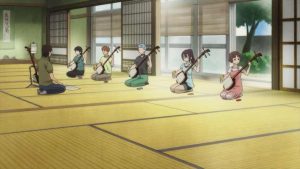 Oodawara-san didn’t make a good first impression by any means, but I grew to appreciate him by the episode’s end (it’s amusing that every time a non-seiyuu appears – Kimura is mainly a DJ – it sticks out like a sort thumb). Oodawara’s dissertation on the history of the shamisen was interesting, especially the passage about the Toudouza (it was strongly implied, but this confirms that Matsugorou was blind). I also liked his inference that the Tsugaru shamisen is Japan’s blues, because that has the ring of truth. I’ve seen it used in blues settings before (Celtic folk as well) in Japanese live houses and the instrument’s affinity for those styles of music is obvious once you’ve seen it.
Oodawara-san didn’t make a good first impression by any means, but I grew to appreciate him by the episode’s end (it’s amusing that every time a non-seiyuu appears – Kimura is mainly a DJ – it sticks out like a sort thumb). Oodawara’s dissertation on the history of the shamisen was interesting, especially the passage about the Toudouza (it was strongly implied, but this confirms that Matsugorou was blind). I also liked his inference that the Tsugaru shamisen is Japan’s blues, because that has the ring of truth. I’ve seen it used in blues settings before (Celtic folk as well) in Japanese live houses and the instrument’s affinity for those styles of music is obvious once you’ve seen it.
 The improvement of the group is a grind, because Setsu is no teacher. And why should he be? He’s a genius and they often have trouble relating to those in their field who aren’t (which is why superstars often make bad coaches), and he has no experience teaching. He can offer Shuri no advice, though in the end he does help her simply by the example of his playing. He’s wavering over whether to enter the individual competition, and at this point it’s pretty obvious that he wants to but doesn’t want to give his mother the satisfaction. A visit from Wakana clinches the decision, but that’s not coincidental as it turns out the old innkeeper as a spy for Umeko who set the whole thing up.
The improvement of the group is a grind, because Setsu is no teacher. And why should he be? He’s a genius and they often have trouble relating to those in their field who aren’t (which is why superstars often make bad coaches), and he has no experience teaching. He can offer Shuri no advice, though in the end he does help her simply by the example of his playing. He’s wavering over whether to enter the individual competition, and at this point it’s pretty obvious that he wants to but doesn’t want to give his mother the satisfaction. A visit from Wakana clinches the decision, but that’s not coincidental as it turns out the old innkeeper as a spy for Umeko who set the whole thing up.
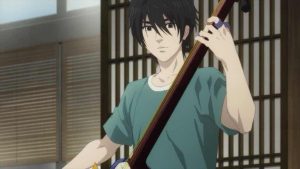 Comparing Mashiro no Oto’s take on this premise with the like of Chihayafuru and Kono Oto Tomare reveals how far short of the mark it falls in some respects. But to be fair those are high bars to clear, and it’s pretty obvious that pacing is a part of the problem (those two adaptations cut nothing from the buildup, and Mashiro plays as if it has been). And with the quality of the musical presentation here, there’s still a big sense of anticipation about the competition to come. Having accomplished that, I think one can only objectively say that the series has been successful in its primary mission up to this point.
Comparing Mashiro no Oto’s take on this premise with the like of Chihayafuru and Kono Oto Tomare reveals how far short of the mark it falls in some respects. But to be fair those are high bars to clear, and it’s pretty obvious that pacing is a part of the problem (those two adaptations cut nothing from the buildup, and Mashiro plays as if it has been). And with the quality of the musical presentation here, there’s still a big sense of anticipation about the competition to come. Having accomplished that, I think one can only objectively say that the series has been successful in its primary mission up to this point.


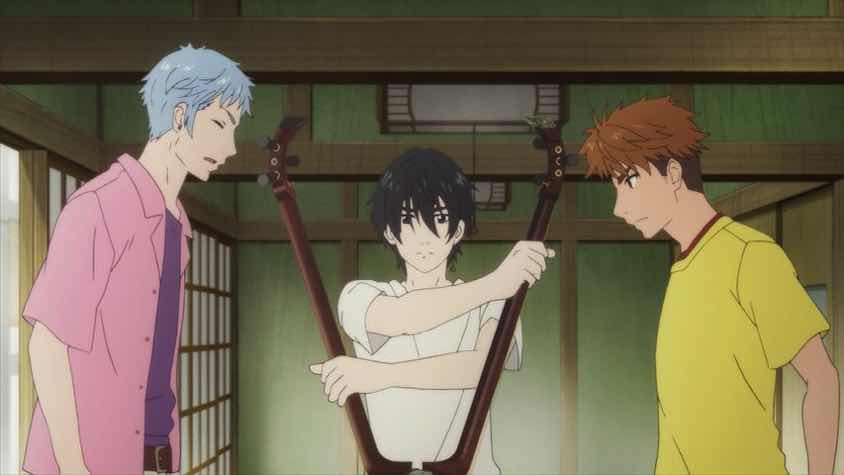
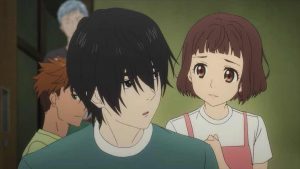

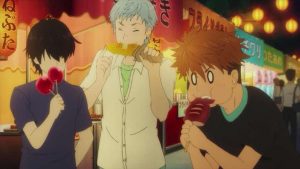
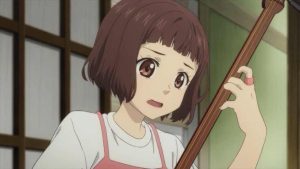
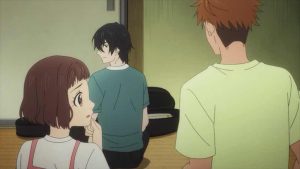

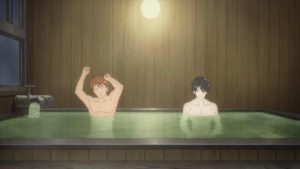
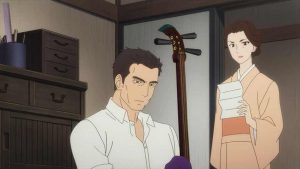

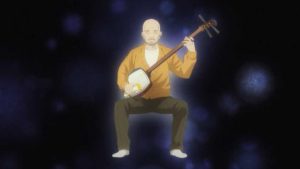

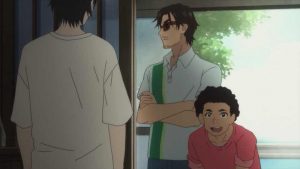

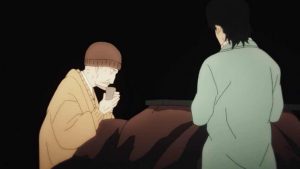
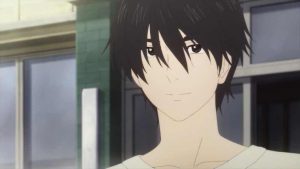

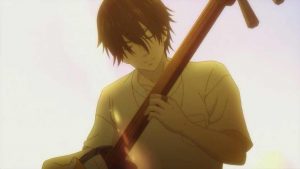

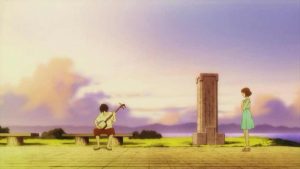

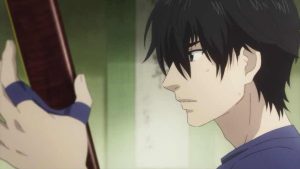


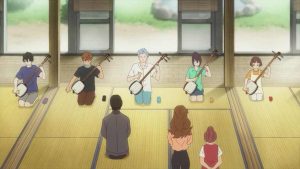

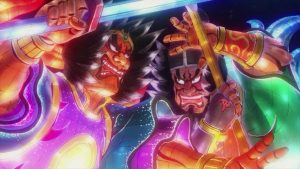
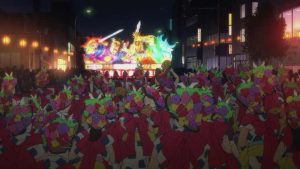
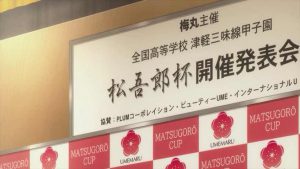




Derrick
May 9, 2021 at 1:10 pmTo write a teenager don’t have to be tropey , interested why author can make good adults but standard teenagers